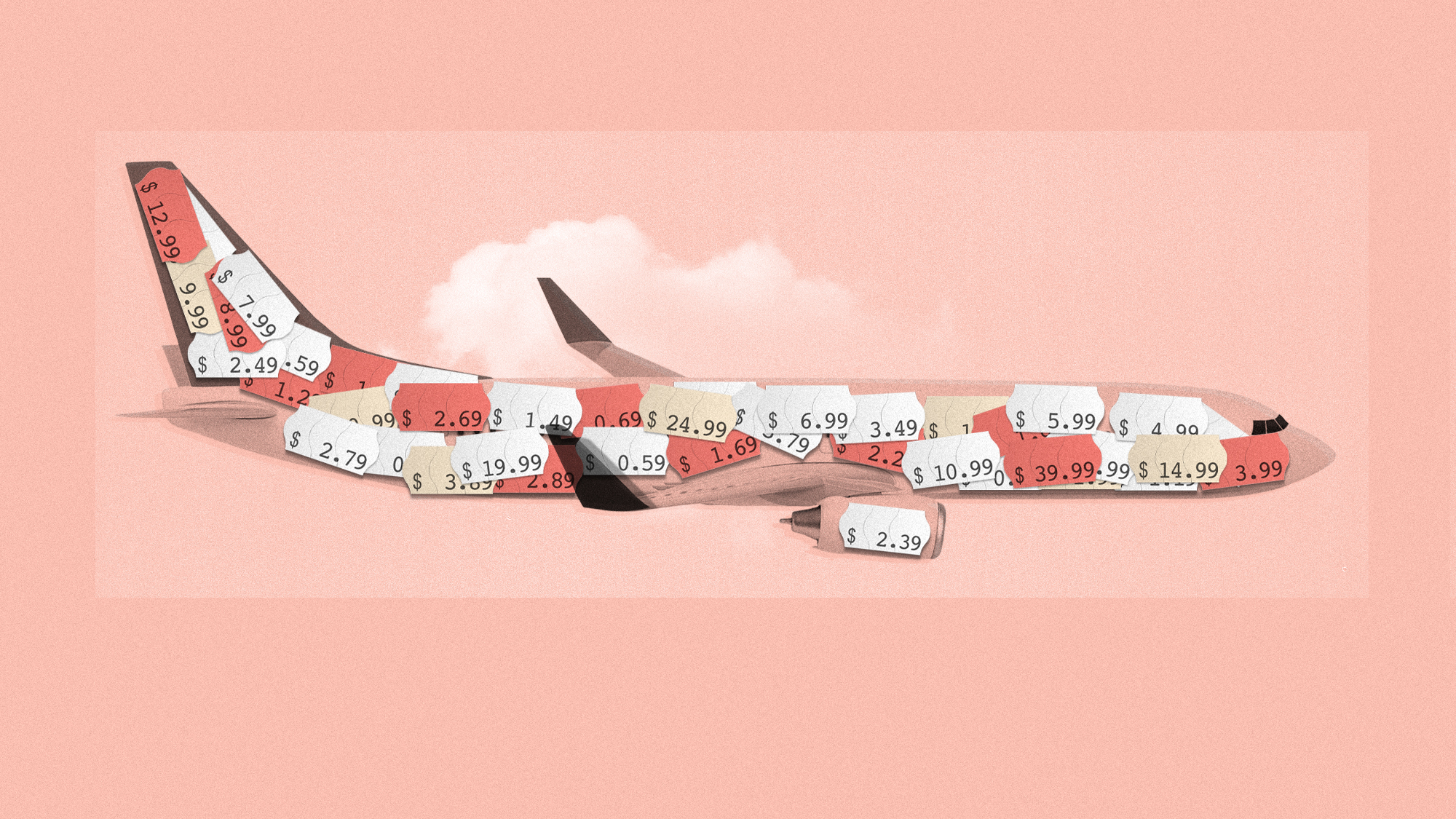Is it the beginning of the end for low-cost travel?
How the potential death of Spirit Airlines could change America's travel landscape


A free daily email with the biggest news stories of the day – and the best features from TheWeek.com
You are now subscribed
Your newsletter sign-up was successful
As the number of corporate consolidations continues to rise, a federal court earlier this month blocked JetBlue Airways' $3.8 billion acquisition of Spirit Airlines, saying the transaction would do "violence to the core principle of antitrust law: to protect the United States' markets ... from anticompetitive harm."
The blocking of the deal appears to leave Spirit Airlines in a sticky situation. The low-cost carrier is continually hemorrhaging money, and unlike most larger airlines, Spirit "never fully recovered from the early days of the pandemic in 2020," The New York Times reported. It is becoming increasingly hard to see a path forward for Spirit without finding another company to acquire it. If the carrier were to declare bankruptcy, it could drastically change the landscape of low-cost travel across the country.
Spirit "flies mostly within the United States; its few international routes are relatively short," the Times added. As a result, its fares are often among the lowest on the market and are seen as an affordable way to travel for low-income Americans and flyers on a budget. If Spirit were to disappear, how would the economics of low-cost airfare change in the United States?
The Week
Escape your echo chamber. Get the facts behind the news, plus analysis from multiple perspectives.

Sign up for The Week's Free Newsletters
From our morning news briefing to a weekly Good News Newsletter, get the best of The Week delivered directly to your inbox.
From our morning news briefing to a weekly Good News Newsletter, get the best of The Week delivered directly to your inbox.
What the commentators said
Spirit "fills a niche for leisure travelers, college students, missionaries, and others seeking bargain basement, no-frills fares," Kevin Williams reported for CNBC. Many markets that are frequented by Spirit could be affected if they were to go under. In Florida, for example, the absence of Spirit will "likely raise prices for incoming tourists from the north. But it will also cut off affordable vacation options for South Florida families heading to the Caribbean," Williams reported.
Spirit is "usually our low-cost leader," Florida Gulf Coast University professor Jase Ramsey told CNBC. "If you want to do a family vacation out of here, that is your go-to airline," Ramsey said, adding that it would be "bad for our region if something happens to Spirit."
While international airports would likely survive as normal, smaller regional airports would see serious consequences if Spirit were to fold. Notably, Spirit is the only commercial airline to service Arnold Palmer Regional Airport in Latrobe, Pennsylvania. "Being that they are the only [commercial carrier], they are really important; it would be devastating if they would go belly up," the airport's executive director, Gabe Monzo, told CNBC.
And what happens to Spirit could also have effects on other airlines as well. U.S. airfares "are not set by actual costs but entirely by the marketplace," the editorial board of the Chicago Tribune wrote. So if Spirit is flying to a particular destination, "the tickets on other carriers will tend to be lower." In order to maintain lower prices across all low-cost carriers, it would be better to "[allow] another carrier, such as a JetBlue/Spirit combo, to rise up and turn an oligarchy of four ... into a more promising five," the Tribune argued.
A free daily email with the biggest news stories of the day – and the best features from TheWeek.com
The problem with the current model across all low-cost airlines "is not lack of competition; it's the lack of sensible regulation to channel competition to public purposes," Phillip Longman wrote in The Atlantic. Airlines "can offer better service when they're big enough to provide seamless connectivity," Longman added. That is why, even if it is detrimental to low-cost carriers, airlines "tend toward monopolization in the absence of competition enforcement."
What next?
Both JetBlue and Spirit have announced their intentions to appeal the blockage of the acquisition. Notably, the airlines "did not lay out any legal argument for the appeal," CNN reported. Rather, they simply notified the court that they'd be "going forward with their efforts to combine and form the nation’s new fifth largest airline."
And while the merger could cause pricing issues on the horizon, there are indications that "2024 may be kinder to travelers' wallets," The Hill reported — at least as things stand now. The outlet cited a study by travel website Kayak which found that "domestic airfare will drop 16% in 2024 compared to 2023." This means that "it’ll cost $461 on average to fly in the states," according to the study.
"A combination of historically high prices last year combined with skyrocketing international travel demand could be forcing airlines to cut domestic costs," Kayak’s chief economist Jake Bouvrie told The Hill. He added that if budget was a concern, "2024 may be a great year to explore right here in the United States."
Justin Klawans has worked as a staff writer at The Week since 2022. He began his career covering local news before joining Newsweek as a breaking news reporter, where he wrote about politics, national and global affairs, business, crime, sports, film, television and other news. Justin has also freelanced for outlets including Collider and United Press International.
